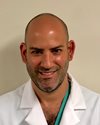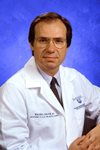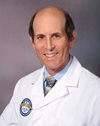|
Surgical and Non-Surgical Approaches to the Management of Rectal Cancer
|
|
Date: Thursday, August 13, 2020
Time: 7:00 PM CT |
|
Moderator: Jose Garcia-Aguilar, MD
Speakers: Arun Nagarajan, MD (Medical Oncology), Mihir Naik, MD (Radiological Oncology) |
|
The overall management of rectal cancer continues to evolve as minimally invasive techniques (abdominally and perineally) expand the surgical options for approaching rectal cancer and outcomes from a mainly non-operative standpoint continue to show improving and promising results, especially in the context of preserving intestinal continuity. This webinar will provide an update on the current surgical and non-surgical approaches to rectal cancer and the increasing role of non-surgical management of rectal cancer. The benefits of a multi-disciplinary approach for each option will also be reviewed during this discussion.
Learning Objectives:
Upon completion of this webinar, participants should be able to:
- Understand current surgical approaches to rectal cancer
- Understand non-surgical approaches to rectal cancer
- Recognize how a multi-disciplinary approach to rectal cancer can improve individual patient outcomes
Register here |
|
| |
|
| Career Transitions - Should I Stay or Should I Go Now? If I Stay, it Could be Trouble, If I Leave, it Could be Double! |
|
Date: Wednesday, September 16, 2020
Time: 7:00 PM CT |
|
Moderator: Kirsten Bass Wilkins, MD, FACS, FASCRS
Speakers: Drs. Lynda Dougherty, Jason Mizell, Deb Nagle, Tom Read, Pat Roberts |
|
Career transitions provide surgeons with opportunities for personal and professional growth. However, making the decision about a career transition may be difficult to maneuver for a variety of reasons. A career transition may take many forms from changing institutions to changing your role within the same institution. A career transition may mean changing your type of practice within colorectal surgery or leaving the practice of clinical medicine all together. Another major transition is thinking about when it is time to retire. These are difficult decisions to make. Please join us for for this webinar.
We are fortunate to have a diverse group of speakers to offer advice from their personal experiences and lessons learned during their individual journeys. |
|
Archived Webinars
| Taking a Look Back to Forge Ahead |
|
Date: May 17, 2020
Time: 5:00 pm Pacific/7:00 pm Central/8:00 pm Eastern |
|
Panel: Drs. Amir Bastawrous, Robert Cleary, Eric Haas, Dana Hayden, Amanda Hayman
Now that the peak of the COVID-19 has passed for most and the surgical re-boot is well underway, we must continue to stay ahead and prepare for what’s next. We take a look back at the lessons we learned and some of the newer considerations to help us continue to move forward.
- Predictions and considerations for the second wave (Panel)
- Personal experience of living through COVID-19 as both a surgeon and patient (Dr. Cleary)
- Emerging peri-operative treatment considerations for the colorectal patient (Dr. Haymen)
- Population Health in the COVID era for colon cancer screening (Dr. Hayden)
Watch the Webinar
|
|
 Amir Bastawrous, M.D., obtained his B.A. and M.D. degrees from the University of Chicago in 1988 and 1992, respectively. He completed his General Surgery training at the University of Chicago Hospitals in 2000 and his Colon and Rectal Surgery training at the Cook County/University of Illinois Program in Chicago in 2001. He completed his MBA in 2009 at the Liautaud Graduate School of Business at the University of Illinois at Chicago. He is the medical director of the Swedish Colon and Rectal Clinic. He is a leader in teaching robotic colon and rectal surgery. Amir Bastawrous, M.D., obtained his B.A. and M.D. degrees from the University of Chicago in 1988 and 1992, respectively. He completed his General Surgery training at the University of Chicago Hospitals in 2000 and his Colon and Rectal Surgery training at the Cook County/University of Illinois Program in Chicago in 2001. He completed his MBA in 2009 at the Liautaud Graduate School of Business at the University of Illinois at Chicago. He is the medical director of the Swedish Colon and Rectal Clinic. He is a leader in teaching robotic colon and rectal surgery.
 Robert Cleary, M.D., FACS, FASCRS, is the Program Director for the Colon and Rectal Surgery Residency, Director of Research at St Joseph Mercy Hospital, Ann Arbor, MI, and President of the Association for Program Directors in Colon and Rectal Surgery. His research interests include Minimally Invasive Surgery and Enhanced Recovery Pathways. He is the Chair of the Enhanced Recovery Pathway Committee in the Michigan Surgical Quality Collaborative and serves on the ASCRS Rectal Cancer Coordinating Committee. Robert Cleary, M.D., FACS, FASCRS, is the Program Director for the Colon and Rectal Surgery Residency, Director of Research at St Joseph Mercy Hospital, Ann Arbor, MI, and President of the Association for Program Directors in Colon and Rectal Surgery. His research interests include Minimally Invasive Surgery and Enhanced Recovery Pathways. He is the Chair of the Enhanced Recovery Pathway Committee in the Michigan Surgical Quality Collaborative and serves on the ASCRS Rectal Cancer Coordinating Committee.
.png?width=100&height=99)
Eric Haas, M.D., attended medical school at the University of Texas Medical School at Houston, where his outstanding achievement was noted by induction into the Alpha Omega Alpha Medical Honor Society. He then completed his General Surgery residency at St. Joseph Medical Center and went on to complete fellowship training in Colon and Rectal Surgery at The University of Texas Medical School.
Dr. Haas is the Director of Quality in Colorectal Surgery for HCA Houston Healthcare and HCA Gulf Coast Division. He also serves as the Program Director of the Minimally Invasive Colorectal Surgery at the University of Texas at Houston. Dr. Haas is a Fellow of the American College of Surgeons and the American Society of Colon and Rectal Surgeons.
 Dana Hayden, M.D., was born in Chicago, went to Lincoln Park High School International Baccalaureate Program and attended University of Virginia for her undergraduate education. She obtained her B.A. in English Literature and a minor in Biology. She obtained her Masters in Public Health at the University of Illinois before she attended medical school at Rush Medical College. Dr. Hayden stayed at Rush for her general surgery residency and then left for her colorectal fellowship at Cleveland Clinic Florida. She returned to Chicago as assistant professor at Rush. During this time, her research evaluating rectal cancer after radiation led to winning the Impact Paper of the Year Award for Diseases of the Colon and Rectum and being named the international travelling fellow for the American Society of Colon and Rectal Surgeons. Dr. Hayden moved to Loyola University Medical Center for 5 years until recently returning to Rush. Dr. Hayden is currently the chief of the Division of Colon and Rectal Surgery and the director of the Rush Cook County Center for Outcomes Research. Her research is focused on rectal cancer, “pre-habilitation” before rectal cancer surgery and outcomes related to colorectal cancer surgery and health disparities. Dr. Hayden lives on the north side of the city with her husband Lincoln and two very happy pups. Dana Hayden, M.D., was born in Chicago, went to Lincoln Park High School International Baccalaureate Program and attended University of Virginia for her undergraduate education. She obtained her B.A. in English Literature and a minor in Biology. She obtained her Masters in Public Health at the University of Illinois before she attended medical school at Rush Medical College. Dr. Hayden stayed at Rush for her general surgery residency and then left for her colorectal fellowship at Cleveland Clinic Florida. She returned to Chicago as assistant professor at Rush. During this time, her research evaluating rectal cancer after radiation led to winning the Impact Paper of the Year Award for Diseases of the Colon and Rectum and being named the international travelling fellow for the American Society of Colon and Rectal Surgeons. Dr. Hayden moved to Loyola University Medical Center for 5 years until recently returning to Rush. Dr. Hayden is currently the chief of the Division of Colon and Rectal Surgery and the director of the Rush Cook County Center for Outcomes Research. Her research is focused on rectal cancer, “pre-habilitation” before rectal cancer surgery and outcomes related to colorectal cancer surgery and health disparities. Dr. Hayden lives on the north side of the city with her husband Lincoln and two very happy pups.
 Amanda Hayman, M.D., MPH, grew up outside of Chicago and graduated from Tufts University with a BS in Biology. She received her MD and Masters of Public Health degrees from Oregon Health & Science University. She completed general surgical training at McGaw Medical Center of Northwestern University and a colorectal surgical fellowship at the Mayo Clinic Rochester. She is now a colorectal surgeon at the Oregon Clinic and a clinical associate professor at OHSU for the residents and colorectal fellows in Portland, OR. Amanda Hayman, M.D., MPH, grew up outside of Chicago and graduated from Tufts University with a BS in Biology. She received her MD and Masters of Public Health degrees from Oregon Health & Science University. She completed general surgical training at McGaw Medical Center of Northwestern University and a colorectal surgical fellowship at the Mayo Clinic Rochester. She is now a colorectal surgeon at the Oregon Clinic and a clinical associate professor at OHSU for the residents and colorectal fellows in Portland, OR.
She has been awarded for compassionate care and excellence in teaching, as well as Portland Monthly's "Top Doctor" award 2015-2019. She is very active in surgical quality improvement and perioperative care. She serves as her hospital’s NSQIP co-surgeon champion, the regional surgical quality officer, and the enhanced recovery program director for the Providence St. Joseph Health System. She lives in Portland with her husband, two daughters, a dog, and a cat. |
|
|
| COVID-19 and Medical Practices |
|
Date: April 26, 2020
Time: 7:00 pm CT
Moderator: Dr. Tracy Hull |
|
Panel: Drs. Lauren Decaporale-Ryan, Conor Delaney, Amy Halverson, Guy Orangio, Marco Bertucci Zoccali
A panel of experts discuss the most current COVID-19 implications. A psychologist provided advice on coping and emotional health during this time. What’s happening in the front lines and private practice relief by the government was also addressed.
Watch the Webinar
View Webinar Resources
|
|
.jpg?width=100&height=129) Lauren DeCaporale-Ryan, PhD, is a clinical psychologist specializing in integrated care and family systems. She attained her PhD at the University of Missouri – St Louis, a clinical internship at the Central Arkansas VA, and postdoctoral fellowship in geriatric primary care/family psychology at the University of Rochester Medical Center where she is now an Assistant Professor of Psychology, Medicine, & Surgery. She serves as the Co-Director of the URMC Physician Communication Coaching Academy, Director of Adult Psychology training, Associate Director of Integrated Care Family Psych Postdocs, and the Associate Program Director of Wellness in General Surgery. She has been in the last of these roles for 5 years, working closely with residents and faculty to build resilience and coping skills, enhanced patient communication and professionalism skills, and developing best practices for teams to improve collegiality and outcomes. Lauren DeCaporale-Ryan, PhD, is a clinical psychologist specializing in integrated care and family systems. She attained her PhD at the University of Missouri – St Louis, a clinical internship at the Central Arkansas VA, and postdoctoral fellowship in geriatric primary care/family psychology at the University of Rochester Medical Center where she is now an Assistant Professor of Psychology, Medicine, & Surgery. She serves as the Co-Director of the URMC Physician Communication Coaching Academy, Director of Adult Psychology training, Associate Director of Integrated Care Family Psych Postdocs, and the Associate Program Director of Wellness in General Surgery. She has been in the last of these roles for 5 years, working closely with residents and faculty to build resilience and coping skills, enhanced patient communication and professionalism skills, and developing best practices for teams to improve collegiality and outcomes.
.jpg?width=100&height=150) Conor P. Delaney, M.D., PhD, is Chairman of the Digestive Disease and Surgery Institute with responsibility for Colorectal Surgery, Gastroenterology and Hepatology, and Surgery for Cleveland Clinic. Dr. Delaney serves on the administrative committees of many national and international professional societies, several editorial boards, and is Treasurer of the American Society of Colon and Rectal Surgeons, and a past-president of the International Society of Laparoscopic Colorectal Surgery, and the Midwest Surgical Association. Dr. Delaney has given over 400 invited lectures nationally and internationally, has published 12 books and more than 380 manuscripts in scientific journals on topics relating to surgical education, colorectal cancer surgery, laparoscopic colorectal surgery and peri-operative care for intestinal surgery. He holds the Victor W. Fazio MD Endowed Chair in Colorectal Surgery. Conor P. Delaney, M.D., PhD, is Chairman of the Digestive Disease and Surgery Institute with responsibility for Colorectal Surgery, Gastroenterology and Hepatology, and Surgery for Cleveland Clinic. Dr. Delaney serves on the administrative committees of many national and international professional societies, several editorial boards, and is Treasurer of the American Society of Colon and Rectal Surgeons, and a past-president of the International Society of Laparoscopic Colorectal Surgery, and the Midwest Surgical Association. Dr. Delaney has given over 400 invited lectures nationally and internationally, has published 12 books and more than 380 manuscripts in scientific journals on topics relating to surgical education, colorectal cancer surgery, laparoscopic colorectal surgery and peri-operative care for intestinal surgery. He holds the Victor W. Fazio MD Endowed Chair in Colorectal Surgery.
.jpg?width=100&height=150) Amy Halverson, M.D., is a Professor of Surgery and Vice Chair of Education at the Northwestern University Feinberg School of Medicine. She received her MD from Columbia University College of Physicians and Surgeons. She completed her general surgery residency at the George Washington University and her colorectal fellowship at the Cleveland Clinic in Cleveland, OH. Dr. Halverson serves of the Board of Governors of the American College of Surgeons and is Chair of the American College of Surgeons Perioperative Care Committee. Amy Halverson, M.D., is a Professor of Surgery and Vice Chair of Education at the Northwestern University Feinberg School of Medicine. She received her MD from Columbia University College of Physicians and Surgeons. She completed her general surgery residency at the George Washington University and her colorectal fellowship at the Cleveland Clinic in Cleveland, OH. Dr. Halverson serves of the Board of Governors of the American College of Surgeons and is Chair of the American College of Surgeons Perioperative Care Committee.
.jpg?width=100&height=149) Guy Orangio, M.D., received his MD from New York Medical College Valhalla NY and did his General Surgery Residency at Long Island Jewish Medical Center New Hyde Park NY and his Fellowship in Colon and Rectal Surgery at Cleveland Clinic Foundation, Ohio. He was in Private Practice in Atlanta GA for 27 years and was Founder and President of Georgia Colon and Rectal Surgical Associates (GCRSA), a 9 member specialty group of Colon and Rectal Surgeons. He is currently Chief of Division of Colon and Rectal Surgery, LSU Department of Surgery New Orleans LA and is Program director of the LSU CRS Fellowship. Dr. Orangio has been an active member of American Society of Colon and Rectal Surgeons (ASCRS) since 1990. He has served on the Executive Council member-at-Large of ASCRS and is currently Advisor to the Health Care Economics Committee of ASCRS. He is currently (since 2002) ASCRS Advisor to the American Medical Association Specialty Society Relative Value Up Date Committee (RUC), and was Vice Chair of the Practice Expense Committee of the RUC 2015-2017). He is currently (since 2003) ASCRS Advisor to the American College of Surgeons General Surgery Coding and Reimbursement Committee. He is a Fellow of ASCRS, ACS and Southeastern Surgical Congress (SSC) and a member of SAGES, SSAT and SLS. He was President Elect of the American Society of Colon and Rectal Surgeons (217-2018) and served as President from 2017-2018. He is currently Past President of ASCRS. Guy Orangio, M.D., received his MD from New York Medical College Valhalla NY and did his General Surgery Residency at Long Island Jewish Medical Center New Hyde Park NY and his Fellowship in Colon and Rectal Surgery at Cleveland Clinic Foundation, Ohio. He was in Private Practice in Atlanta GA for 27 years and was Founder and President of Georgia Colon and Rectal Surgical Associates (GCRSA), a 9 member specialty group of Colon and Rectal Surgeons. He is currently Chief of Division of Colon and Rectal Surgery, LSU Department of Surgery New Orleans LA and is Program director of the LSU CRS Fellowship. Dr. Orangio has been an active member of American Society of Colon and Rectal Surgeons (ASCRS) since 1990. He has served on the Executive Council member-at-Large of ASCRS and is currently Advisor to the Health Care Economics Committee of ASCRS. He is currently (since 2002) ASCRS Advisor to the American Medical Association Specialty Society Relative Value Up Date Committee (RUC), and was Vice Chair of the Practice Expense Committee of the RUC 2015-2017). He is currently (since 2003) ASCRS Advisor to the American College of Surgeons General Surgery Coding and Reimbursement Committee. He is a Fellow of ASCRS, ACS and Southeastern Surgical Congress (SSC) and a member of SAGES, SSAT and SLS. He was President Elect of the American Society of Colon and Rectal Surgeons (217-2018) and served as President from 2017-2018. He is currently Past President of ASCRS.
.jpg?width=100&height=150) Marco B. Zoccali, M.D., is a board-certified surgeon who specializes in treating a broad range of colorectal diseases including inflammatory bowel disease (IBD), colon and rectal cancers, and benign colorectal diseases. Dr. Zoccali received his medical degree from the Catholic University in Rome, Italy where he also completed his surgical training. He then came to the US to complete a Minimally Invasive Gastrointestinal Surgery Fellowship at the University of Chicago followed by a surgical residency at Weill Cornell Medical Center. Dr. Zoccali completed his Colon and Rectal Surgery Fellowship at the University of Chicago before joining Columbia. Dr. Zoccali has a keen interest in research related to colorectal surgery. He has published more than 40 articles in major surgical journals and contributed to several book chapters. Marco B. Zoccali, M.D., is a board-certified surgeon who specializes in treating a broad range of colorectal diseases including inflammatory bowel disease (IBD), colon and rectal cancers, and benign colorectal diseases. Dr. Zoccali received his medical degree from the Catholic University in Rome, Italy where he also completed his surgical training. He then came to the US to complete a Minimally Invasive Gastrointestinal Surgery Fellowship at the University of Chicago followed by a surgical residency at Weill Cornell Medical Center. Dr. Zoccali completed his Colon and Rectal Surgery Fellowship at the University of Chicago before joining Columbia. Dr. Zoccali has a keen interest in research related to colorectal surgery. He has published more than 40 articles in major surgical journals and contributed to several book chapters.
|
|
| COVID-19 and Virtual Visits |
|
Date: April 22, 2020
Time: 7:00 pm CT
Moderators: Sean Langenfeld |
|
Panel:
Brooke Gurland - Office workflow and efficiencies in Telehealth practices
Eric Haas - Transitioning your practice to a virtual office
Steve Sentovich - Applications of telehealth in colorectal care beyong COVID-19
Sarah Voglar - Documentation, coding and billing compliance
Our surgical practice will never be the same. Virtual visits are most likely here to stay and had a boost in implementation with the COVID-19 crisis. This webinar brings experts together to discuss their experiences and tips learned. |
|
Watch the Webinar
|
|
|
.jpg?width=100&height=100) Brooke Gurland, M.D., is a Clinical Professor of Surgery in the Division of Colorectal Surgery at Stanford University, Stanford, CA. She is also Medical Director of the Stanford Pelvic Health Center in Redwood City, CA. Brooke Gurland, M.D., is a Clinical Professor of Surgery in the Division of Colorectal Surgery at Stanford University, Stanford, CA. She is also Medical Director of the Stanford Pelvic Health Center in Redwood City, CA.
Prior to Stanford, she was an Assistant Professor of Medicine Lerner College of Medicine of Case Western Reserve University and a Staff Surgeon at the Cleveland Clinic, OH, in the Department of Colorectal Surgery. She was a prior recipient of a Jahnigan Career Development award to evaluate pelvic floor disorders in elderly women. Her clinical interests continue to focus on pelvic floor disorders, rectal prolapse, innovative treatments for fecal incontinence, anorectal diseases, and multidisciplinary pelvic floor evaluations and treatments.
Dr. Gurland attended Hahnemann/ Drexel University School of Medicine in Philadephia, PA. She completed a general surgery residency at The Mount Sinal Medical Center in New York, NY, and Colorectal Surgery Fellowship at the Cleveland Clinic, Weston, FL. She is board certified in general and colorectal surgery and performs laparoscopic and robotic surgery.
 Eric Haas, M.D., Eric Haas, M.D., attended medical school at the University of Texas Medical School at Houston, where his outstanding achievement was noted by induction into the Alpha Omega Alpha Medical Honor Society. He then completed his General Surgery residency at St. Joseph Medical Center and went on to complete fellowship training in Colon and Rectal Surgery at The University of Texas Medical School.
Dr. Haas is the Director of Quality in Colorectal Surgery for HCA Houston Healthcare and HCA Gulf Coast Division. He also serves as the Program Director of the Minimally Invasive Colorectal Surgery at the University of Texas at Houston. Dr. Haas is a Fellow of the American College of Surgeons and the American Society of Colon and Rectal Surgeons.
 Stephen Sentovich, M.D., MBA is the Physician Lead of Clinical Operations and Clinical Professor and Chief of the Section of Colon and Rectal Surgery at the City of Hope National Medical Center in Los Angeles. He currently serves as the ASCRS AMA RUC advisor. He has formerly been the chair of the Healthcare Economics Committee and program chair for the annual meeting of the ASCRS. Stephen Sentovich, M.D., MBA is the Physician Lead of Clinical Operations and Clinical Professor and Chief of the Section of Colon and Rectal Surgery at the City of Hope National Medical Center in Los Angeles. He currently serves as the ASCRS AMA RUC advisor. He has formerly been the chair of the Healthcare Economics Committee and program chair for the annual meeting of the ASCRS.
 Sarah A. Vogler, M.D., MBA is the Section Chief of Pelvic Floor Disorders within the Department of Colorectal Surgery at the Cleveland Clinic in Cleveland, OH. She received her medical degree at the University of Cincinnati, and completed a residency in general surgery at the University of Utah. She received her MBA at the University of Cincinnati and completed a colon and rectal surgery fellowship at the University of Minnesota. Her clinical work is primarily focused on the evaluation, treatment and surgery for pelvic floor disorders. She runs the anal physiology lab at the Cleveland Clinic and leads multidisciplinary clinics and surgeries with urogynecology and urology for the treatment of pelvic organ prolapse. Surgically, she specializes in minimal invasive and robotic techniques. Administratively she is involved in optimizing practice management through best practices in coding, billing and growth strategies. Sarah A. Vogler, M.D., MBA is the Section Chief of Pelvic Floor Disorders within the Department of Colorectal Surgery at the Cleveland Clinic in Cleveland, OH. She received her medical degree at the University of Cincinnati, and completed a residency in general surgery at the University of Utah. She received her MBA at the University of Cincinnati and completed a colon and rectal surgery fellowship at the University of Minnesota. Her clinical work is primarily focused on the evaluation, treatment and surgery for pelvic floor disorders. She runs the anal physiology lab at the Cleveland Clinic and leads multidisciplinary clinics and surgeries with urogynecology and urology for the treatment of pelvic organ prolapse. Surgically, she specializes in minimal invasive and robotic techniques. Administratively she is involved in optimizing practice management through best practices in coding, billing and growth strategies. |
|
| COVID-19 Lessons |
Date: March 29, 2020, 7:00 pm CT
Moderator: Tracy Hull, MD
Panel:
Sonia Ramamoorthy, MD – How would I manage a COVID-19 paitent in the OR
Tom Read, MD – Impact of increasing cases on surgery schedules
Kirsten Wilkins, MD – Experiences with redeployment of resources
Julio Garcia-Aguilar, MD – Triaging colorectal cancer cases in New York City
Amir Bastawrous – Should we perform laparoscopy on COVID-19 patients? What is happening in Seattle? |
| As the number of cases of Coronavirus (COVID-19) continue to increase, hospitals across the country are coping with multiple challenges. This webinar brings together panelists to discuss their experiences and the lessons they’ve learned. From operating on patients with COVID-19 to shifting schedules, we will discuss the impact of the pandemic and what you can do to ensure the safety of your patients, your staff and yourselves. |
Watch the Webinar
|
| Pilonidal Disease |
Date: February 11, 2020, 7:00 pm CT
Moderator: Eric K. Johnson, MD, FACS, FASCRS
Speakers: David Rosen, MD; Muneera R. Kapadia, MD, MME, FACS, FASCRS
|
Pilonidal disease is a common ailment seen by colorectal and general surgeons all over the world. Despite the common nature of the disease, its treatment is associated with complications and recurrence. Many surgeons lack awareness of some of the more modern flap-based procedures that can lead to a lower recurrence rate. It is imperative to disseminate this information in a meaningful and easy-to-access forum, such that patient outcomes can be optimized. Various operative techniques can be reviewed and tips and tricks can be discussed. A question- and answer-based portion will facilitate adequate attention to issues facing surgeons who treat this disease. A case-based discussion will similarly assist with proper technique selection.
Learning Objectives:
- Describe both basic operative and non-operative management of pilonidal disease.
- Describe the pitfalls of surgical management of pilonidal disease.
- Describe basic postoperative management of surgical patients.
- Select a surgical procedure most appropriate to the level of disease in a given patient.
|
.jpg?width=100&height=125)
|
Eric K. Johnson, MD, FACS, FASCRS received his BS degree in biology from the University of Maryland at College Park and went on to medical school at the University of Maryland School of Medicine in Baltimore. From there he completed general surgery residency in the US Army and a colorectal fellowship at the Georgia Colon and Rectal Surgical Clinic in Atlanta, GA. He now practices in Cleveland, OH at the Cleveland Clinic. He has written several book chapters on the management of pilonidal disease and has similarly published in peer reviewed journals. He has experience with both simple and complex pilonidal disease and has used the cleft lift and rhomboid flap techniques extensively. |
 |
David Rosen, MD, received his AB from Princeton University and his MD from Tufts University School of Medicine prior to completing a residency in general surgery as well as fellowship in surgical critical care at the University of Southern California. Dr. Rosen then completed fellowship in colon and rectal surgery at Washington University in St. Louis. He is currently a staff surgeon in the Department of Colon and Rectal Surgery at the Cleveland Clinic Foundation in Cleveland, Ohio. |
 |
Muneera R. Kapadia, MD, MME, FACS, FASCRS, has a BS in Chemical Engineering from MIT and earned her MD from the University of Michigan. She completed her general surgery training at Northwestern University and a fellowship in colon and rectal surgery at the University of Minnesota. Her clinical practice is broadly based in colon and rectal surgery, with special interests in inflammatory bowel disease and colorectal cancer. Her academic interests are in education-related activities. In addition to completing a Masters in Medical Education, she is Associate Program Director for the General Surgery Residency Program at the University of Iowa and heavily involved in teaching the preclinical medical students. |
| |
| Behind Every Great Leader is a Great Mentor |
 |
Original webinar date: November 14, 2019 7:00pm CT
Moderator: Tracy Hull, MD; ASCRS President
Panelists: Ann Lowry, MD; Daniel Popowich, MD; David Rothenberger, MD; and Patricia Sylla, MDz |
Watch the webinar recording.
This webinar is not eligible for CME. |
Mentors can play a vital role in a young surgeon’s career and leadership development. The mentor/mentee relationship can be the most important relationship of an emerging leader’s career. This panel addresses some of the biggest questions surrounding establishing a mentorship connection such as: What makes a great mentor? What makes a great mentee? How do you choose a mentor? When is the right time to seek a mentor? Is there a difference between a sponsor and a mentor? What do you do if it is not a good fit? Do leaders need mentoring? These questions and more are answered in this webinar.
|
| Complex Anorectal Crohn's Disease |
 |
Original webinar date: August 15, 2019
Moderator: Daniel Popowich, MD
Speakers: Anjali Kumar MD, MPH, FACS, FASCRS and Elizabeth Breen, MD |
This webinar is designed to help you understand the medical and surgical management of simple and comlex perianal Crohn's disease. This includes the medical and surgical management and when to divert.
Upon completion of this webinar, you should be able to:
- Understand optimal medical management of perianal Crohn's disease
- Review local surgical options in the management of perianal Crohn's disease
- Describe when to divert, temporary or permanantly
The following have no relevant financial relationships to disclose:
Daniel Popowich, MD
Anjali Kumar MD, MPH, FACS, FASCRS
Elizabeth Breen, MD
|
| Rectal Prolapse |
 |
Original webinar date: May 16, 2019
Moderator: Brooke Gurland, MD
Speakers: Mehraneh Jafari, MD and Rocco Ricciardi, MD, MPH |
Get the webinar recording.
Please log in to your member account before clicking this link. |
Rectal prolapse is a relatively common debilitating condition with both functional and anatomic sequelae.
Rectal prolapse can occur in all age groups as a result of functional bowel and pelvic floor disorders.
Throughout the past century, more than 100 different surgical procedures have been described and there is no consensus regarding the best technique. Recurrence rates for complete rectal prolapse have been reported as high as 20-50 percent. The ideal surgical approach to treat these recurrences remains an unresolved problem.
The goal of this webinar is to discuss the evaluation, workup surgical management and outcomes of rectal prolapse in different subgroups of patients.
Upon completion of this webinar, you should be able to:
- Describe the testing needed to assess patients with rectal prolapse prior to surgery
- Review the surgical decision making for different subgroups of patients with rectal prolapse
- Review the surgical outcomes for patients undergoing different surgical procedures for rectal prolapse
The following have no relevant financial relationships to disclose:
Brooke Gurland, MD
Mehraneh Jafari, MD
Rocco Ricciardi, MD, MPH
|
| Surgical Treatment of IBD in the Era of Biologics: Ileal Pouches and Pouchitis |
 |
Original webinar date: November 8, 2018
Moderator: Walter A. Koltun, MD, FACS, FASCRS
Speakers: Samuel Eisenstein, MD and Matthew Mutch, MD |
Get the webinar recording.
Please log in to your member account before clicking this link. |
There continues to be controversy regarding the surgical treatment of ulcerative colitis, even more so in this era of biologic therapy. Patients failing medical management will still be treated with colectomy, but now will commonly go to the OR with some biologic agent having been given. Data looking at complications and outcomes associated with surgery and biologic use is difficult to interpret due to the preselected nature of this group of patients, their variable degree of wellbeing at the time of surgery, the variable phenotype of the illness itself and a multitude of differing biologics now being used. However, with time and increasing experience an evolving consensus is emerging, especially insofar as patients undergoing the IPAA procedure. Surgeons need to be aware of factors that can improve or worsen surgical complications associated with the IPAA procedure in patients treated with biologics.
Once the patient undergoes definitive IPAA reconstruction, too often the enigmatic complication of pouchitis will occur. Depending on study and duration of follow up, up to 50% of patients will suffer the signs and symptoms of pouchitis within two years of IPAA creation. Pouchitis suggests itself to be (like IBD) the consequence of the combined effects of genetic predisposition and noxious enteric agents but is very much more responsive to medications, especially antibiotics than the original ulcerative colitis. However, there is, like IBD, a spectrum of pouchitis severity that demands a measured approach with differing therapies based on the specifics of presentation. Though antibiotics may work on mild pouchitis, more severe forms require more aggressive therapy including possibly biologic therapy. The surgeon should be aware of the varying forms and causes of pouchitis, to then be able to institute the appropriate therapy.
Upon completion of this webinar, participants should be able to:
- explain the risks and complications associated with IPAA surgery in patients with biologic therapy.
- identify methods/techniques to modify/improve risk of IPAA surgery in patients on biologic surgery.
- describe the workup and subclassification of patients with pouchitis.
- distinguish the various therapies for patients with pouchitis based on subclassification.
The following have no relevant financial relationships to disclose:
Samuel Eisenstein, MD
Walter A. Koltun, MD, FACS, FASCRS
Matthew Mutch, MD
|
| Enhancing Patient-Physician Communications |
 |
Original webinar date: February 21, 2019
Moderator:Jennifer S. Beaty, MD, FACS, FASCRS
Speakers: William C. Cirocco, MD and James Merlino, MD |
There is renewed emphasis on patient-physician interaction. The relationship between patient-physician communication quality and patient outcome is important, and physician-patient relationship affects patient satisfaction scores. Evidence-based literature exists on ways to improve the quality of patient-physician communication. This webinar is designed to help surgeons to strategically improve this essential skill.
Upon completion of this webinar, you should be able to:
- Understand the relationship between patient experience and patient outcomes
- Describe the role of patient-physician communication and patient satisfaction scores.
- Describe a communications curriculum and ways to implement aspects into your practice/institution
All identified conflicts of interest have been resolved:
James Merlino, MD, Press Ganey Associates: Salary, Employment
The following have no relevant financial relationships to disclose:
Jennifer S. Beaty, MD, FACS, FASCRS
William C. Cirocco, MD
|
| Management of Metastatic Colon Cancer |
 |
Original Webinar Date: September 20, 2018
Moderator: Stephen Sentovich, MD
Speakers: Paula Denoya, MD, FACS, FASCRS; Jonathan Efron, MD, FACS, FASCRS |
Get the webinar recording.
Please log in to your member account before clicking this link. |
This is a webinar on the management of metastatic colon cancer. During the webinar, the following topics will be addressed: how to identify patients with metastatic colon cancer, how to work-up patients with metastatic colon cancer, what nonsurgical and surgical treatments are available and when they are indicated, and what are the expected results of treatment.
Upon completion of this webinar, participants should be able to:
- Explain the work-up for patients with metastatic colon cancer.
- Recognize the treatment options for patients with metastatic colon cancer.
- Describe the follow-up of patients with metastatic colon cancer.
All identified conflicts of interest have been resolved.
Jonathan Efron, MD, FACS, FASCRS: Ethicon Endosurgery: Educational Consultant, Honorarium, Teaching
The following have no relevant financial relationships to disclose:
Paula Denoya, MD, FACS, FASCRS
Stephen Sentovich, MD
|
| Management of Anal Dysplasia: Is There a Correct Approach? |
 |
Original webinar date: June 21, 2018
Moderator: Bard C. Cosman, MD, MPH
Speakers: Stephen E. Goldstone, MD, FACS and Emily Steinhagen, MD |
Get the webinar recording.
Please log in to your member account before clicking this link. |
This webinar will review current strategies for the evaluation and management of the patient with high-grade anal dysplasia (HSIL) in different clinical settings, such as when it is discovered incidentally by the surgeon and when the patient with known HSIL is referred to the surgeon. The role of surgical treatment in the management of “Bowen’s disease” has evolved over the past 25 years, with significant changes in our understanding of this condition, and consequent changes and controversies about the timing and choice of interventions.
When HSIL diagnosis became common, surgeons questioned and largely rejected the practice of wide local excision. Some adapted supravital staining and colposcopy from gynecologic usage, in the now widespread practice of high-resolution anoscopy. Others questioned the cervical-dysplasia model and advocated expectant management of HSIL. The natural history of HSIL and its conversion or progression to anal cancer stand at the heart of the controversy; differing views on these matters will be reviewed and debated during this webinar. The minimum standard of care which applies to all surgeons, regardless of their position in the controversy, will be discussed.
Upon completion of this webinar, participants should be able to:
- Identify groups of patients at high risk for high-grade dysplasia (HSIL).
- Identify other lesions associated with HSIL.
- Identify arguments for ablation of HSIL.
- Identify arguments for expectant management of HSIL.
- Identify the standard of care demands of a surgeon seeing a patient with HSIL identified on Pap smear or biopsy.
All identified conflicts of interest have been resolved.
Stephen E. Goldstone, MD, FACS: Merck and Co.: Honorarium, Consulting Fee, Speaking, Advisory Committee; Medtronic: Honorarium, Consulting Fee, Research Support, Consulting, Speaking, Teaching, Research Protocol; Antiva: Research Support; Inovio: Research Support
The following have no relevant financial relationships to disclose:
Bard C. Cosman, MD, MPH
Emily Steinhagen, MD
|
| Surgical Site Infection |
 |
Original webinar date: Thursday, February 15, 2018
Moderated by: Christopher Mantyh, MD
Speakers: I. Emre Gorgun, MD, and Najjia Mahmoud, MD |
Get the webinar recording.
Please log in to your member account before clicking this link. |
This webinar examined the significant problem of Surgical Site Infection (SSI) in colorectal surgery and discussed how to measure the rate, as well as efforts to methods to reduce the SSI rate. The use of bundles, the importance of a multidisciplinary team, and financial benefits (and potential penalties) were also discussed.
Upon completion of this program, participants should be able to:
- Recognize the magnitude of surgical site infection in colorectal surgery.
- Identify how to measure and track SSIs.
- Fix SSI problems in colorectal surgery.
- Identify the biggest barriers in fixing SSIs in colorectal surgery.
All identified conflicts of interest have been resolved.
Dr. Christopher Mantyh: Becton Dickinson: Honorarium, Consulting, Speaking, Advisory Committee
Dr. I. Emre Gorgun: Boston Scientific: Consulting Fee, Consulting
The following have no relevant financial relationships to disclose:
Dr. Najjia Mahmoud |